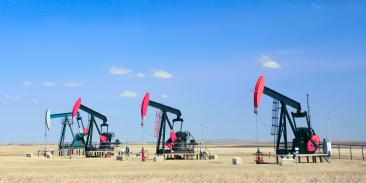Financial Regulators Issue Oversight Recommendations to Bolster Integrity and Transparency in Voluntary Carbon Markets at COP28
DUBAI – Today, the Commodity Futures Trading Commission (CFTC) released draft guidance for regulated exchanges that list carbon credit based derivatives. While voluntary, the guidance will clarify CFTC’s expectations regarding the quality of carbon credits eligible for delivery into futures contracts. The Commission authorized a 75-day comment period, during which EDF will work closely with partners to develop detailed comments.
Release of the draft guidance follows a two-year input gathering effort, including two stakeholder convenings and a public request for information through which CFTC solicited feedback from stakeholders about potential vulnerabilities inhibiting investment in, and impact of, the voluntary carbon markets. Predictably, many stakeholders articulated concerns related to market integrity and credit quality.
When used with integrity, and in the context of policies that ensure equity and environmental justice, voluntary carbon markets can help unlock much needed financing to accelerate climate action,” said Elizabeth Gore, Senior Vice President for Political Affairs at Environmental Defense Fund. “CFTC’s proposed guidance is a welcome step towards raising the bar for high-quality carbon credits. We encourage CFTC to finalize guidance that establishes high expectations for carbon credits as well as broader market transparency, and look forward to collaborating with partners to build on this momentum.
This news follows after the International Organization of Securities Commissions (IOSCO) unveiled its recommendations for the regulation of Voluntary Carbon Markets (VCM) at the Spanish Pavilion during COP28 in Dubai. The Commission’s recommendations set a precedent for financial market regulation to drive accountability, transparency, and trust in the voluntary carbon market.
While each jurisdiction will take a unique approach to financial market oversight of these markets, the IOSCO report outlines key considerations such as risk management, transparency, price discovery, legal and regulatory clarity and conflict of interest that are relevant to any financial regulator considering how best to promote integrity in voluntary carbon markets.
Whether to invest in the VCM remains voluntary, but regulation and standards governing how companies engage in the voluntary carbon market could be a huge boost for trust and accountability,” said Holly Pearen, Lead Counsel at Environmental Defense Fund. “Financial market regulators are in a unique position to mandate fair and orderly trading, offer real-time market surveillance and enforce rules to prevent fraud, conflict of interest and market manipulation. EDF shares IOSCO’s goals of advancing the discussion around sound and efficient carbon markets and the role of financial regulators in promoting integrity.
With more than 3 million members, Environmental Defense Fund creates transformational solutions to the most serious environmental problems. To do so, EDF links science, economics, law, and innovative private-sector partnerships to turn solutions into action. edf.org
Media Contact
Latest press releases
-
Washington State, California and Québec Release Draft Agreement to Link Cap-and-Invest Programs
March 3, 2026 -
Public Interest Groups Go to Court to Halt Trump Administration Order to Keep Washington’s Last Coal Plant Operating
March 3, 2026 -
U.S. Judge rules New York’s congestion pricing program can continue
March 3, 2026 -
Environmental Defense Fund announces first grantees in SRM research program
March 2, 2026 -
Apple Watch carbon neutral court ruling sets guardrails for greenwashing litigation
February 26, 2026 -
New Proposal in Congress Would Gut Key Provisions of Landmark Chemical Safety Law, Putting Families’ Health at Risk
February 26, 2026










